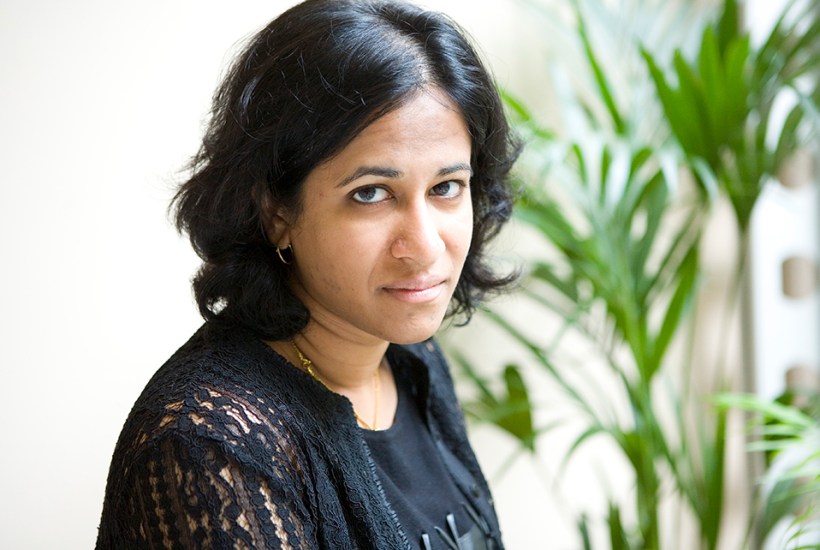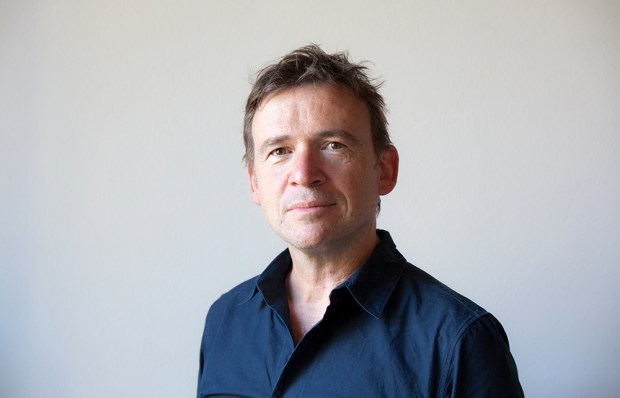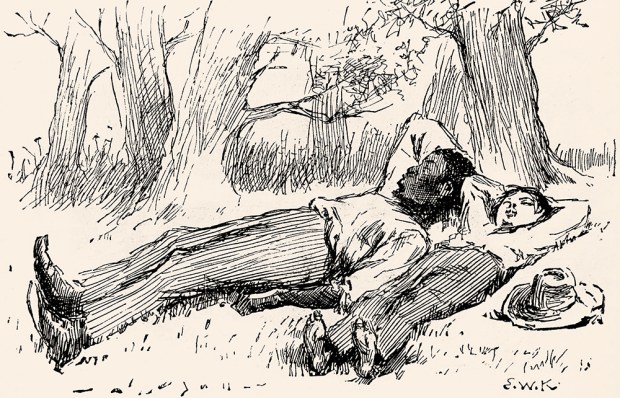Brotherless Night is the second novel by V.V. Ganeshananthan, an American writer of Sri Lankan Tamil descent, whose debut, Love Marriage, was longlisted for the Women’s Prize for Fiction in 2008. Here, as in her previous book, a female narrator unpicks the lives of a Sri Lankan family torn apart by civil war.
The prologue, set in New York in 2009, explodes with its opening sentence: ‘I recently sent a letter to a terrorist I used to know.’ But the bulk of the novel, set in 1980s Sri Lanka, is a mesmerising portrait of time and place in which the narrator gradually reveals who this terrorist is, and explores why ‘that word, terrorist, is too simple for the history we have lived. Some day the story will begin with the word civilian, the word home.’
Ganeshananthan co-hosts the ‘Fiction/Non/Fiction’ podcast, with the strapline: ‘Everything you see on the news has already been written about in literature.’ So it’s no surprise that the politics of language is at this novel’s forefront, and its sweeping, engrossing plot is carefully grounded in historical events, including an emotive rendering of the Mothers’ Front protest in Jaffna in 1984 and featuring a main character based on the activist Rajani Thiranagana.
In Sri Lanka in 1981, the young narrator, Sashi, is a medical student. She studies hard, along with her brothers and their friend K, but their ambitions come under pressure when riots break out and the Sinhalese police burn down their library. It isn’t long before Sashi and her grandmother have to escape the mobs torching people’s homes. But her eldest brother, who has gone in search of a hiding place, doesn’t return, and two more of her brothers, along with K, disappear to join the Tamil Tigers. As she observes: ‘The ranks of boys in Jaffna town were beginning to thin.’ An entire generation starts to find itself ‘brotherless’.
Ganeshananthan focuses on women in war, both as newly brotherless and as people who adopt a different stance to the male norm: ‘Our other [male] professors discussed politics in blunt, angry terms. Professor Premachandran [the only female teacher] listened to us and asked questions… These were the qualities of a woman.’ There is a powerful moment when Sashi recognises a pregnant suicide bomber as a rape victim she has treated. Her patient has become impatient, and has transformed her condition, resulting from male force, into a cover for her own act of violence.
Sashi’s reason for studying medicine, and her oft-repeated mantra, is: ‘First do no harm’. As she faces endless decisions about what to do – whether to act or wait – and tries to assess the harm each action or inaction will cause, it becomes increasingly challenging for her to navigate a tangle of commitments to her family, friends, homeland and vocation. When we return to New York two decades later we’ve begun to understand how the Tamil ‘terrorists’ defy this label as much as any other. Ganeshananthan triumphs in her portrait of them as complex individuals – ‘people you might know or love’.
Got something to add? Join the discussion and comment below.
Get 10 issues for just $10
Subscribe to The Spectator Australia today for the next 10 magazine issues, plus full online access, for just $10.
You might disagree with half of it, but you’ll enjoy reading all of it. Try your first month for free, then just $2 a week for the remainder of your first year.















Comments
Don't miss out
Join the conversation with other Spectator Australia readers. Subscribe to leave a comment.
SUBSCRIBEAlready a subscriber? Log in